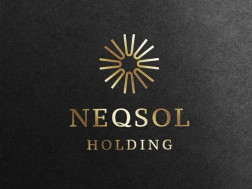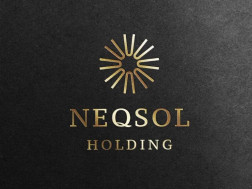The op-ed prepared by Mr. Yusif Jabbarov, CEO of NEQSOL Holding, an international group of companies which works in 9 countries in energy, telecom, hi-tech and construction materials markets. The op-ed was first published on The European Business Review.
In recent years, one of the key areas in the work of business has been compliance. And its role will only increase in the near future, so the owners and top managers of companies need to keep up to speed. I would like to share my vision of five key compliance trends – a proper understanding of the situation will maximize the benefits.
As I have said, the development of compliance has been the key to business success overall in recent years. Compliance is also often a strategic priority to ensure investment and access to the capital market. It is not uncommon for companies to prioritize investments in areas that directly affect revenues (sales, supplies, etc.). But if the management and the business owner think strategically, then compliance should be among these priorities, because its impact is strategic in nature.
At the same time, responsibility for developing compliance in accordance with global trends should not be held by one person, but by a team. That is why we have a full-fledged team at NEQSOL Holding that updates plans for developing this area quarterly and tracks and implements all compliance innovations in the holding.
Tracking business trends is not for the sake of keeping abreast of new products, but in order to see the future, adjust goals, and begin to use practices in time to improve business efficiency and increase its value.
The second trend concerns ethical leadership. This principle was the leitmotif of all panel discussions at the recent conference on ethics and compliance in Amsterdam, organized by the Society of Corporate Compliance and Ethics (SCCE). If leaders cannot explain to employees why it is important to adhere to ethics and compliance principles, it will be very difficult to apply these principles in the company. You can prescribe thousands of procedures, policies, and standards and send them out by e-mail to every employee, but if the leader themself does not show by example what it is and why it is needed, then the result will be zero. Lead by example – the best advice for effective compliance in a company.
One of our first initiatives in building a compliance system was to create a hotline. Our compliance managers encouraged employees to call for various reasons – clarification of an employment contract, violation of personal rights, suspicion of breach of tender procedures, etc. This is how trust is born and employees feel that compliance concerns everyone. Moreover, if people really are valued in a company, if there is a culture of staff development, then employees themselves want to learn how to do their jobs ethically and in accordance with compliance standards. All of this adds to the company’s vitality overall.
The next trend is to introduce Environmental, Social, and Corporate Governance (ESG) criteria as an integral component of the compliance system. Criteria that relate to the environment include reducing CO2 emissions, reducing water consumption at production facilities, switching to renewable energy sources, etc. The social component defines the principles of interaction within the team and with suppliers, customers, and various communities. The value of this became more than evident after the start of the pandemic, when a number of companies prioritized the health and safety of people – their employees, partners, contractors, etc. And the third component of ESG relates to leadership and competent management, including in an unstable environment: this is the environment in which businesses around the world have been operating in recent years.
It is worth noting that ESG is relatively new, so there is still a lot of uncertainty. For example, there is no clear definition of who will be responsible for developing it in a particular company. Some companies have delegated the work to the risk management department, some to compliance specialists, some to PR, and in some companies, the ESG specialist is a separate position.
Now there is a directive that deals with developing ESG, but there are no detailed guidelines or clear instructions, like in, for example, sanctions compliance. I think the approach will be unified in the next year or two: each company will still determine for itself who will handle developing ESG, but the requirements for the specialists will be quite specific and uniform for all companies.
Furthermore, it is important to note that compliance law does not stand still. The constant improvement of compliance laws is a response to developments in the world. It is worth recalling the history of the development of compliance.
Compliance originated as a reaction to misconduct in companies. After the United Kingdom Bribery Act was passed, the government made it clear that one should not wait until something wrongful happens, but should try to prevent possible wrongdoing in advance. So reactive compliance was replaced by preventive compliance.
The development of compliance was heterogeneous by industry, as well. In the United States, for example, preventive compliance developed primarily in the pharmaceutical industry, which is still one of the most regulated business sectors. Later, the banking sector joined the development of compliance: the introduction of international banking standards, such as FATF requirements, required creating new divisions in banks. The international application of sanctions against entire states – first Iran, then Russia – has also added to the work of compliance specialists.
We are now seeing a process of “work on mistakes” and improving existing directives. For example, there are new EU directives on anti-corruption risk management. The U.S. has developed guidelines for investigators who handle bribery investigations. Companies can use this guidance to improve their own compliance programs on a “looking back” basis.
Increasingly, compliance standards are becoming standardized and certified. For example, a separate standard appeared a few years ago for the certification of anti-bribery management systems, ISO 37001:2016. This guide makes it possible in practice to create a system of corporate governance that prevents and detects corruption. A new standard, ISO 37301:2021, was recently released to help organizations develop and adopt a culture of compliance within the organization or effective compliance management.
With the opening of the NEQSOL Holding office in the Netherlands and our plans for development in Europe, compliance with the EU General Data Protection Regulation (GDPR) is particularly important to us. After all, any significant error in the protection of personal data and human rights law can lead to extremely serious consequences and damage to an impeccable business reputation.


















